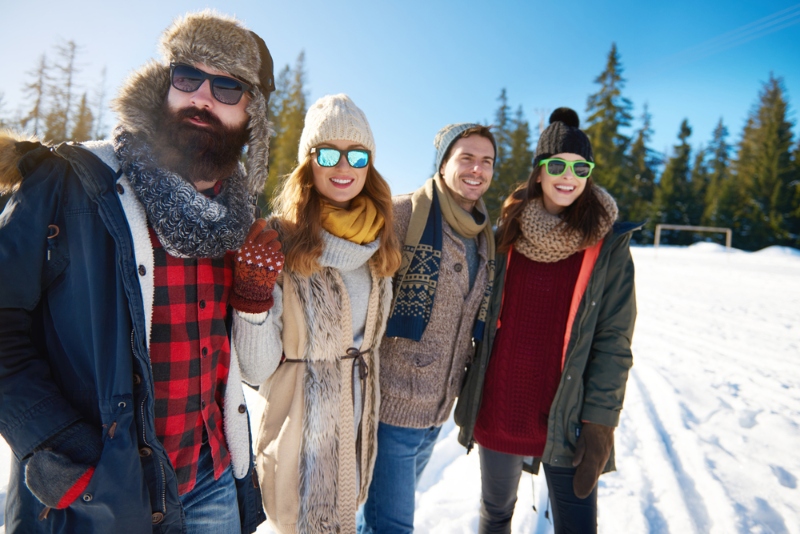Now that travel has really started again in earnest, we are finally seeing Aussies visiting snow-laden slopes overseas again and though sunnies and snow do not seem to go together, they may save you a lot of stress in the future. Though it may feel like a fashion disaster to wear sunglasses in the snow, it can improve your eye health and prevent future problems. Below we have broken down the dangers of staying sunglass-free in the snow and how you can prevent damage.
What Damage Can the Snow Cause?
Though we know that staring at the sun can cause damage, a lot of people do not think about the damage that sun glare can cause. A lot of the time we do not think about the fact that snow and ice reflect larges amounts of glare back up. The three main dangers of the snow to the eyes are UV damage, cornea sunburn, and eye strain:
- UV Damage: Sunlight has not only the visible light spectrum but also UVA, UVB, and UVC rays. UVA rays are mainly absorbed by the lens and retina and UVB rays are mostly absorbed by the cornea which can cause damage to the eyes. Winter sun reflecting off of the snow can cause high levels of glare and not only can this glare impact your vision, but it can also lead to your eyes absorbing larger numbers of UVB rays. With extended exposure, UV damage can cause eye health problems such as cataracts, macular degeneration, and in extreme cases, can lead to blindness.
- Cornea Sunburn (photokeratitis): Corneal sunburn, also known as photokeratitis, is much more common than you may think. It is caused when UVB rays hit the cornea in large amounts and is often compared to severe sunburn. Photokeratitis can cause pain and even temporary blindness and is frequently associated with high altitudes and skiing. However, anyone looking to go to snowy climbs should be ensuring they are wearing sunglasses.
- Eye Strain: Eye strain and headaches can commonly be caused by exposure to sun-glare. Your eyes, in bright light, will see your pupils automatically contract to adjust to the light. However, when the light gets too bright, your pupils are unable to adjust to a comfortable level of brightness and this can lead to your retinas, which are sensitive to light, absorbing too much light. This can, in turn, lead to you squinting which can lead to eye strain, and even headaches!
Eye damage can be a real danger when it comes to spending time in the snow but there are ways to avoid damage to your eyes.
How Do I Prevent It?
The main way to protect your eyesight from the snow is to prevent the glare and UV rays from even reaching your eyes, to begin with! Of course, the best way to do this is by using sunglasses, but the important thing is to ensure you have chosen sunglasses that will actually provide the protection you need:
- UV Protection: High-quality sunglasses should offer protection against all types of UV rays, including the most dangerous UVB rays. You will want to check that your sunglasses are effective against UVA and UVB light up to wavelengths of 400.
- Polarised Lenses: For further protection, it is recommended that your sunglasses for the snow are also polarised as this can help with both the glare and the possibility of cataracts. Polarised sunglasses work to preclude light from reaching your eyes and this reduces the chance of glare and eye strain.
In an ideal world, when snowing you should always have a pair of polarised, high-UV protection sunglasses on hand (and maybe some backups to be safe) to avoid glare and sun damage to your eyes and so that you can enjoy your snow holiday stress-free!
Looking for Sunglasses for the Snow?
Look no further than BrightEyes! Our range of sunglasses and accessories will keep your eyes safe! We have a wide selection of polarised sunglasses and even a range of cover glasses for full wrap-around coverage. Browse our full range of sunglasses today to protect your eyes on your next overseas trip today!

